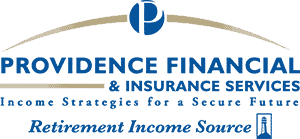This is an excerpt from an article by Anthony A. Saccaro, ChFC, published on Friday, October 11, 2013 in the following newspapers: Pasadena Star-News, Whittier Daily News, San Gabriel Valley Tribune, Long Beach Press-Telegram, San Bernardino Sun, Inland Valley Daily Bulletin.
The last time interest rates were this low was, well… never! But recently, thanks to Ben Bernanke and crew at the Federal Reserve, they are on the rise. What does this mean to you? Probably more than you think.
When rates go up, daily living becomes more expensive for those who don’t pay cash. You will pay more when you buy a car, use your credit cards or purchase a home. For example, if you finance $450,000 for a home today at the current rate of 4.49% (30-year fixed rate according to Freddie Mac), you will fork over an extra $105,000 in interest over the life of the loan than if you had purchased the home last year when the rate was only 3.35%.
But that may be the least of your concerns as rates continue to climb. Many savers, especially retirees or those who are close to retirement, have their money in bond funds because they want to protect their principal. They are worried about the stock market, and bonds are safer, right? Well… maybe.
Individual bonds offer two very important guarantees—a guaranteed interest rate and a guaranteed maturity date, which means that at some point in the future, you’ll get your investment back (assuming the issuer doesn’t go broke). However, between the time you buy the bonds and the time they mature, their value will fluctuate.
Because bond values fluctuate opposite of interest rates, the value of your bonds will likely go down as rates go up. That’s okay though, because it is only a paper loss—if you hold your bonds to maturity, you’ll get your principal back, plus the guaranteed interest.
But many investors, especially those who have retirement accounts such as a 401(k) or a 403(b), are in danger because they own bond funds, not individual bonds. With a bond fund, you lose the two most important guarantees that individual bonds offer. Bond funds don’t guarantee an interest rate and they don’t mature. Because of this, when your bond fund loses value, it may be a permanent loss and not a paper loss. This can be shocking to investors who consider bond funds to be a “safe” investment.
Bond funds have experienced significant losses in the last few months, and it’s fairly certain that interest rates will continue to climb, causing further depreciation in bond value. If you have bond funds, now is a great time to meet with your advisor and review your portfolio. Being proactive could keep your portfolio from suffering unnecessary losses.




